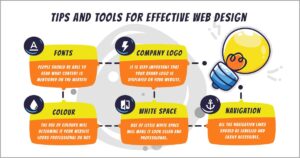Search Engine Optimization (SEO) is a crucial aspect of digital marketing that helps businesses increase their online visibility and reach more potential customers. However, with so many factors to consider, it can be overwhelming to know where to begin. One of the most essential elements of SEO is on-page optimization.
On-page optimization refers to the process of optimizing individual web pages in order to rank higher and earn more relevant traffic in search engines. This includes optimizing content, meta tags, headings, images, and other elements on a website’s page. In this article, we will delve into the importance of on-page optimization for SEO and how it can help your business gain a competitive edge in today’s digital landscape. So let’s get started!
Benefits Of On-Page Optimization
On-page optimization is a critical component of search engine optimization (SEO), as it enables web pages to rank higher in search engine results pages (SERPs). By optimizing on-page factors such as title tags, meta descriptions, header tags, and internal linking structures, businesses can improve their website’s relevance and authority for targeted keywords. This can lead to increased visibility, traffic, and conversions.
One of the primary benefits of on-page optimization is its ability to improve user experience (UX). By optimizing for both search engines and users, businesses can create a website that’s easy to navigate and understand. This can lead to longer dwell times, lower bounce rates, and higher engagement levels—all metrics that search engines consider when ranking web pages.
Key Elements Of On-Page Optimization:
Title Tags
Title tags, meta descriptions, and header tags are the three key on-page optimization elements that can make a significant impact on your website’s search engine rankings. Title tags are the first thing that search engines and users see when they land on your page, so it’s crucial to make them descriptive and keyword-rich. They should be unique for every page of your website and accurately reflect the content of the page.
Meta Descriptions
Meta descriptions provide a brief summary of what visitors can expect from your web page. They should also be unique for each webpage and contain relevant keywords to give users an idea of what they will find if they click through to your site. A compelling meta description has more chances of getting clicks than a generic one.
Header Tags
Header tags help organize content into sections while making it easier for both search engines and users to understand what each section is about. The H1 tag is used only once per page as it represents the main heading or title of that particular webpage. H2-H6 headings can be used multiple times to break up subtopics into distinct sections, which also helps with readability and user experience. Proper use of these three on-page optimization elements contributes significantly towards improving search engine rankings while providing a better user experience at the same time.
Best Practices For On-Page Optimization:
Keyword Placement
Keyword placement, content quality, and mobile responsiveness are some of the most crucial aspects of on-page optimization for SEO. Keyword placement refers to the strategic use of keywords in various elements of a webpage such as title tags, meta descriptions, header tags, and body content. The proper use of keywords can help search engines better understand the relevance and topic of a page.
Content Quality
Content quality is another critical factor in on-page optimization. Google has emphasized that high-quality content is essential for ranking well in search results. High-quality content should be informative, engaging, and relevant to users’ search queries. Growth Friday, a leading provider of digital marketing services, recognizes the importance of content quality and offers a range of services to help businesses create compelling and impactful content.
Mobile Responsiveness
Mobile responsiveness is also an essential aspect of on-page optimization. With the majority of internet browsing now happening on mobile devices, websites need to be optimized for smaller screens and touch-based interactions. A mobile-responsive site provides a better user experience for visitors using smartphones or tablets and can improve rankings in mobile searches. Growth Friday SEO Services LA recognizes the importance of mobile responsiveness and offers comprehensive solutions to ensure that businesses’ websites are optimized for mobile users.
Common Mistakes To Avoid In On-Page Optimization:
Keyword Stuffing
On-page optimization is an integral part of SEO that can make or break your website’s ranking. However, it’s important to avoid certain mistakes in on-page optimization, which can adversely affect your website’s SEO. Keyword stuffing is one such mistake that many website owners tend to make. It involves repeating the same keyword multiple times in a single page, which makes the content look spammy and unreadable. This practice not only hurts user experience but also draws penalties from search engines.
Duplicate Content
Another common mistake to avoid in on-page optimization is duplicate content. Duplicate content refers to blocks of text that appear on more than one page on a website or across different websites. Search engines may penalize websites for duplicate content as they consider it plagiarized material. Therefore, it’s important to ensure that each page has unique and relevant content that adds value to users.
Conclusion
In conclusion, prioritizing on-page SEO is essential if you want to improve your website’s visibility and search engine rankings. On-page optimization focuses on various elements that help search engines understand the content of your site better, such as keyword usage, meta descriptions, title tags, and internal linking. By optimizing these elements, you can ensure that your website ranks higher in search results for relevant keywords.
Moreover, implementing on-page SEO best practices can also improve the user experience for your visitors. When users can easily navigate through your site and find the information they need quickly, they are more likely to stay longer and engage with your content. This ultimately leads to increased conversions and revenue for your business.
Overall, neglecting on-page SEO can result in missed opportunities for traffic and revenue generation. Therefore it’s crucial to prioritize this aspect of optimization when creating or updating a website to achieve long-term success in online marketing efforts.






Я считаю, что Вы не правы. Я уверен. Давайте обсудим это. Пишите мне в PM, поговорим.
Прошу прощения, что вмешался… У меня похожая ситуация. Давайте обсудим.